Moto G Stylus and Moto G Power hands-on: The budget Galaxy Note is here
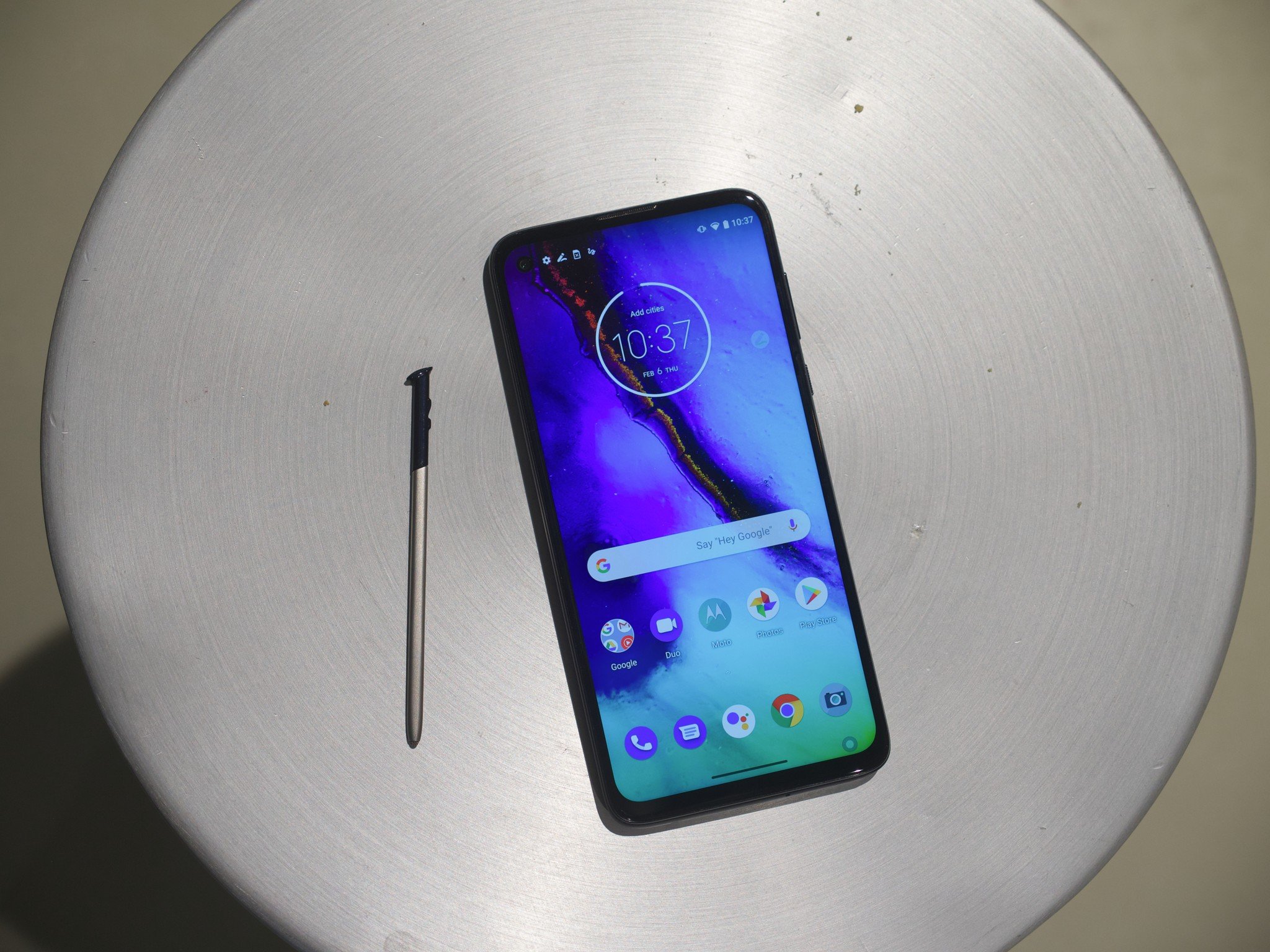
In 2013, Motorola asserted itself as a top player in the affordable smartphone space with the original Moto G. Every year since then, Motorola's continued to tweak and refine this formula with update after update to the G lineup.
Last year saw the release of the Moto G7, G7 Play, and G7 Power in the United States — all three of which we've recommended at one point or another for shoppers on a budget.
Moto G is back for 2020, but it looks a little different than it has in years past. The Moto G Stylus and Moto G Power have arrived. Even though Motorola launched a G8 Plus and G8 Play outside of the U.S., the 8 moniker didn't make its way to the United States and Canada, where these phones will launch later this spring.
Despite the name shift and the introduction of a completely new variant with the Stylus, these are still the same kind of Moto G phones we've come to expect over the years.
Moto G Stylus
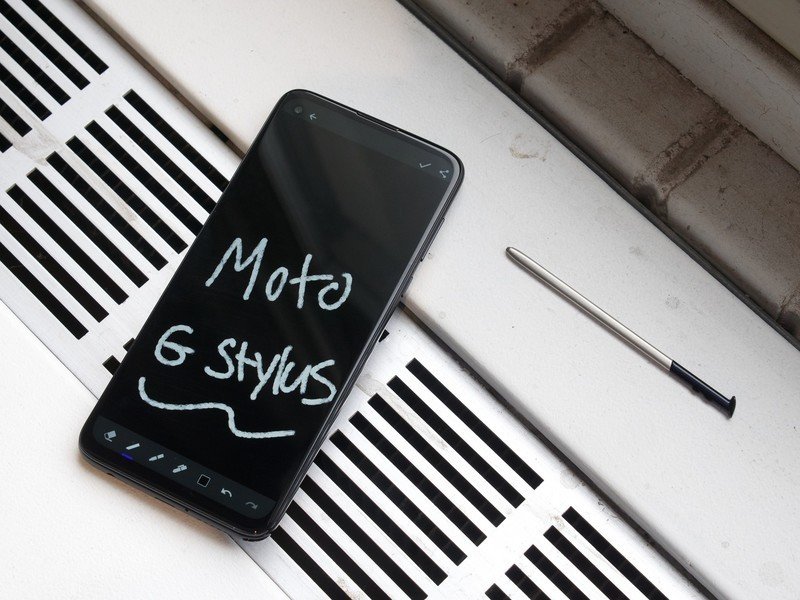
Starting first with arguably the most interesting of the duo, let's talk about the Moto G Stylus. This is the first phone Motorola's ever released with a built-in stylus, and it has all of the usual stylus features. Taking the stylus out with the screen off launches Moto Note, allowing you to instantly start taking notes on a black screen similar to what you get on a Galaxy Note. When the screen is on, taking the stylus out launches a customizable pop-up menu with apps you can use with it.
You won't find any remote Bluetooth functions similar to what you get on the Note 10, but taking handwritten notes, drawing, and navigating the UI all feels good. The stylus is a bit thinner than your typical S Pen, but at this price, it's about what we'd expect.
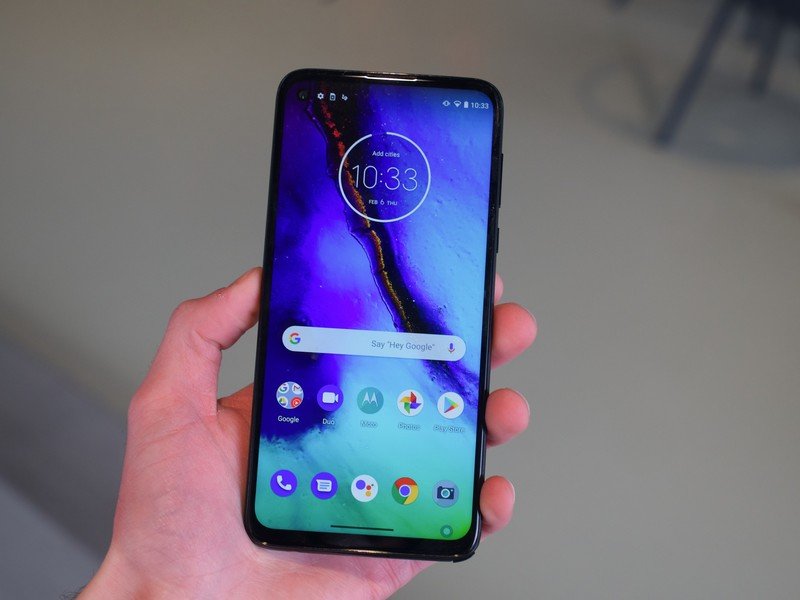
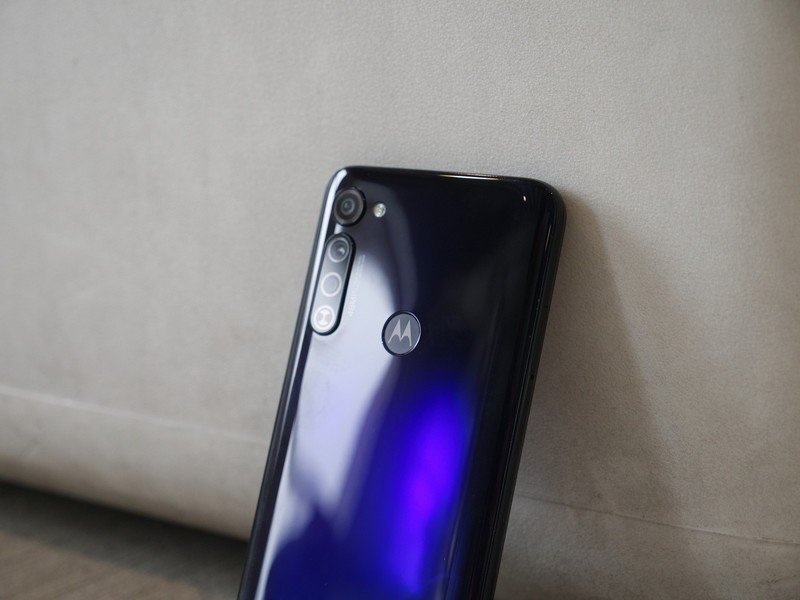
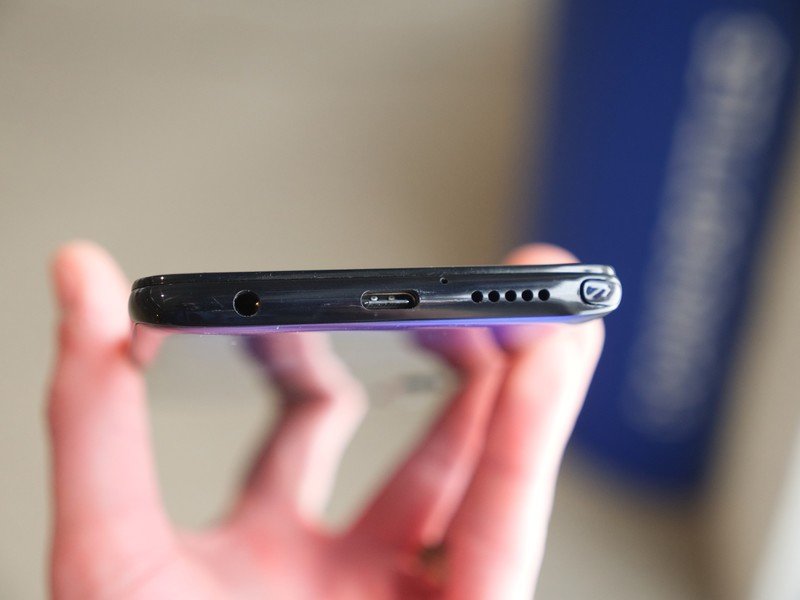
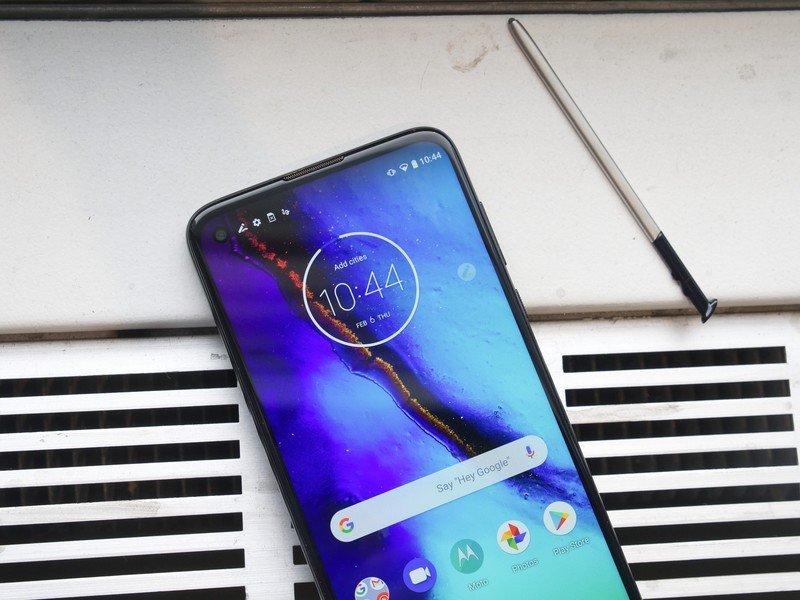
All of the drawing and writing takes place on a 6.5-inch Full HD+ display, which is accompanied by slim bezels and a hole-punch notch in the upper-left corner. It's plenty sharp, colors are good, and in general, it's just a solid panel.
Be an expert in 5 minutes
Get the latest news from Android Central, your trusted companion in the world of Android
Motorola's also touting the camera capabilities for the G Stylus, and it's a pretty interesting setup. You get a 48MP primary sensor for the majority of your picture-taking, along with a 2MP Macro Vision camera that allows you to really zoom in on your subjects. The third sensor is Motorola's Action Cam, which is used just for video capture. Similar to what we saw on the Motorola One Action last year, this makes it possible to record landscape video when you're holding the G Stylus vertically. The Action Cam always felt like a niche feature to me, so it's interesting to see Motorola bring this to another phone in the U.S.
Moto G Power
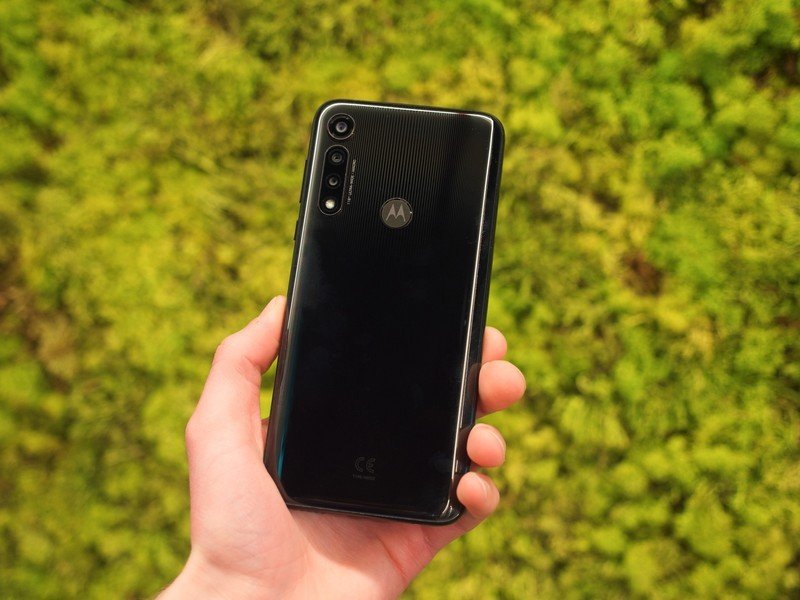
Shifting over to the Moto G Power, it drops the included stylus in favor of a massive battery. The G Stylus's 4,000 mAh unit is nothing to scoff at, but the G Power kicks things up to 5,000 mAh. That's the same capacity found on the Moto G7 Power, and just like that phone, Motorola's promising up to three days of use on just one charge.
You also get a slightly different camera system with the G Power, with its triple cameras consisting of a 16MP primary camera, 8MP ultra-wide camera with a 118-degree field-of-view, and the same 2MP Macro Vision camera. While not as technically impressive, you might get more value/use out of a traditional ultra-wide lens that can be used for photos and videos as opposed to the G Stylus's Action Cam that's limited to video.
| Category | Moto G Stylus | Moto G Power |
|---|---|---|
| Operating System | Android 10 | Android 10 |
| Display | 6.4-inchFull HD+Max Vision | 6.4-inchFull HD+Max Vision |
| Processor | Qualcomm Snapdragon 665 | Qualcomm Snapdragon 665 |
| Memory | 4GB RAM | 4GB RAM |
| Storage | 128GB | 64GB |
| Expandable Storage | Up to 512GB | Up to 512GB |
| Rear Camera 1 | 48MP primary cameraf/1.71.6um | 16MP primary cameraf/1.71.12um |
| Rear Camera 2 | 2MP Macro Visionf/2.2 | 2MP Macro Visionf/2.2 |
| Rear Camera 3 | 16MP Action Camf/2.22.0um117-degree field-of-view | 8MP ultra-widef/2.21.12um118-degree field-of-view |
| Front Camera | 16MPf/2.01um | 16MPf/2.01um |
| Security | Rear fingerprint sensor | Rear fingerprint sensor |
| Connectivity | Wi-Fi 802.11 a/b/g/n/acBluetooth 5.0 | Wi-Fi 802.11 a/b/g/n/acBluetooth 5.0 |
| NFC | ❌ | ❌ |
| Ports | USB-C3.5mm headphone jack | USB-C3.5mm headphone jack |
| Audio | Dual stereo speakers with Dolby tuning | Dual stereo speakers with Dolby tuning |
| Battery | 4,000 mAh | 5,000 mAh |
| Water Resistance | Water-repellent | Water-repellent |
| Dimensions | 158.55 x 75.8 x 9.2mm | 159.85 x 75.84 x 9.63mm |
| Weight | 192g | 199g |
| Colors | Mystic Indigo | Smoke Black |
Outside of the battery and camera, the rest of the G Stylus and G Power experience is pretty much identical. Both phones are powered by Qualcomm's Snapdragon 665 processor — built on an 11nm process that's more efficient than the 14nm Snapdragons on previous Moto Gs — have 4GB of RAM, dual stereo speakers with Dolby tuning, and ship with Android 10. You'll find the typical array of Moto Experiences, such as chopping for the flashlight and Moto Display, along with a new Moto Gametime feature that gives you additional controls and settings when playing a game.
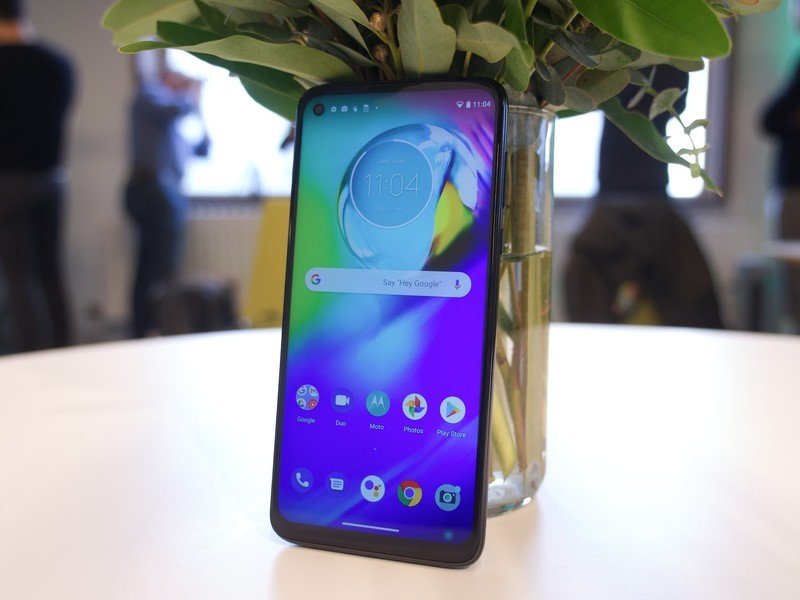
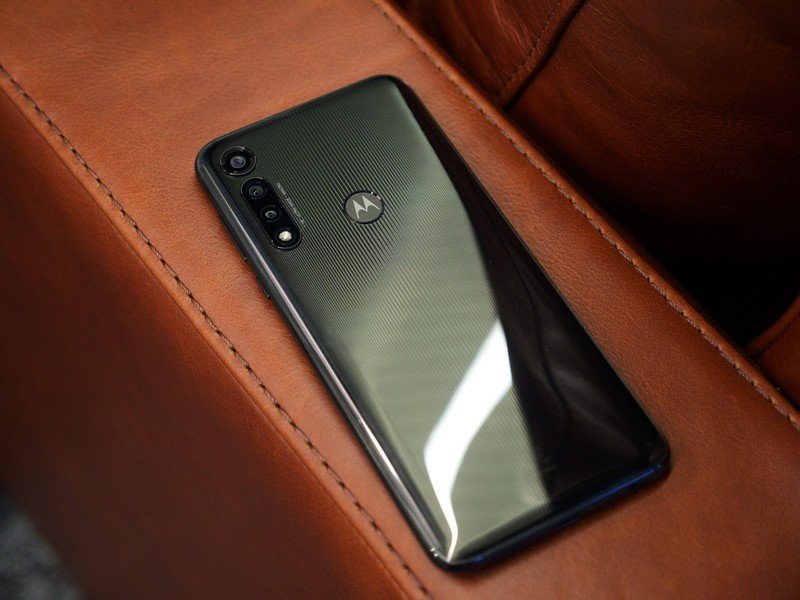
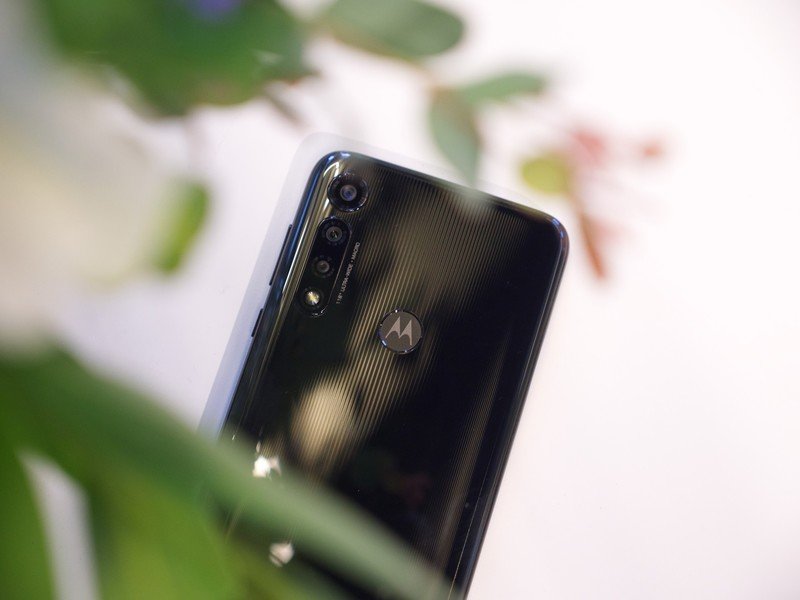
Both the G Stylus and G Power are launching this Spring, and pricing is just as competitive as ever. You'll pay $299.99 for the G Stylus with 128GB of storage, or $249.99 for the G Power and its 64GB. If you need additional space, each phone supports expandable storage up to 512GB. And, yes, they both have 3.5mm headphone jacks.
Give and take
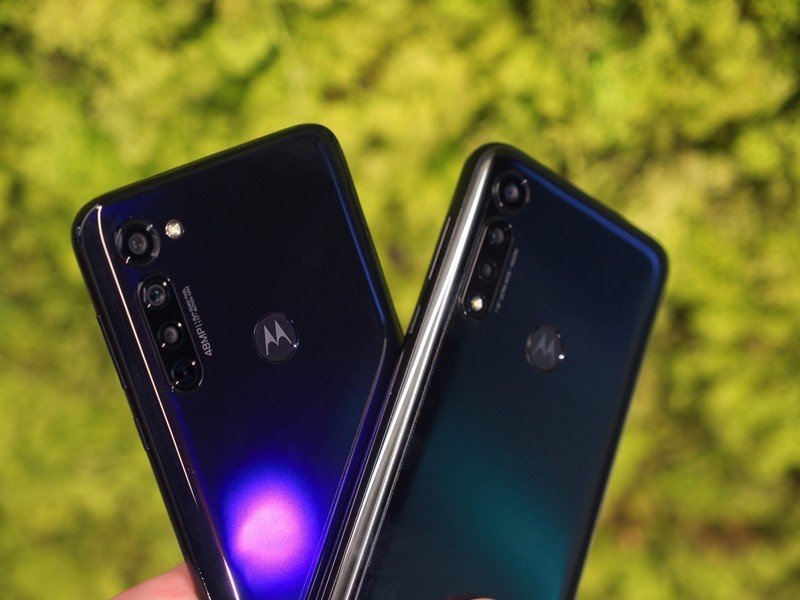
In some regards, 2020 is a big year for the Moto G lineup. There's the updated branding, new camera tech, and the addition of the stylus. Those are all big things, and they give Moto G a breath of fresh air — something we always appreciate. On the flip side, the G Stylus and G Power also feel really similar. These are still mid-range phones with mid-range specs, coming in with price tags that your wallet will appreciate.
The stuff that works with Moto G phones still works on the new Stylus and Power, but the pain points remain, too. There's still no NFC chip, meaning you can't use either phone for contactless Google Pay payments. That was forgivable a couple of years ago, but with how much NFC adoption has grown at various stores across the country, the decision to omit it from the G Stylus and G Power stings more than ever.
There's also the harsh reality of Android updates for Moto G phones, or should I say, the lack thereof. Moto G phones typically get one major software update, but nothing beyond that. With Nokia's lineup of mid-range and budget phones constantly growing, each one offering two years of guaranteed software support, it has us hoping Motorola can up its game in these regards sooner rather than later.
The G Stylus and G Power aren't changing the game, but they are continuing the legacy of giving you lots of bang for your buck. These are very capable phones that have very affordable prices, and just like every year, they will likely be among the top recommendations for phones around that $300 range.
And if you can't wait until the spring but still want a great budget phone, the Moto G7 is a tantalizing $200 right now.
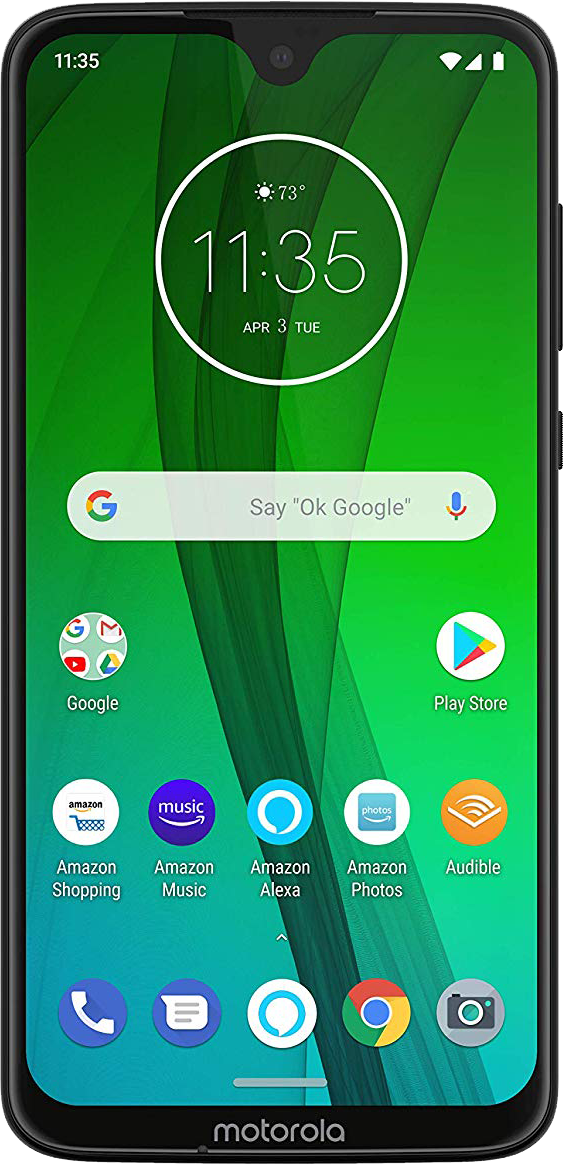
A sleek, stylish, and powerful budget phone.
The Moto G7 is a perfect example of what an affordable smartphone should look like. It has a sleek glass back, a large Full HD+ display with slim bezels, clean software, and capable specs. For the price Motorola's asking, the value proposition here is incredible.
Joe Maring was a Senior Editor for Android Central between 2017 and 2021. You can reach him on Twitter at @JoeMaring1.

